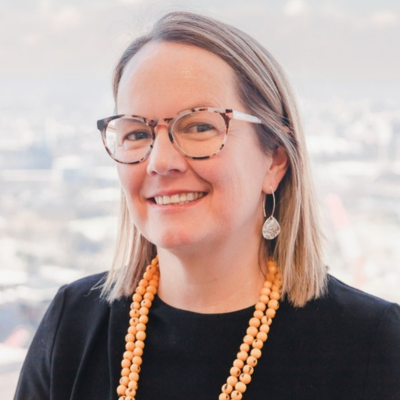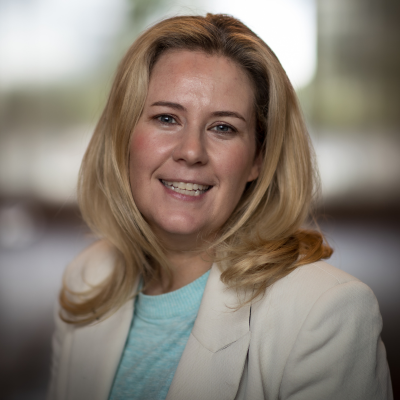 Clare Anderson
Clare Anderson
Group Director – Sustainability Performance
Worley
- What are some of the key reporting challenges that even sophisticated organisations get wrong and how can they be overcome?
- How can organisations identify and address some critical under-the-radar reporting risks?
- How can reporting be used to drive positive business outcomes?
Moderator:
 Connor McCauley
Connor McCauley
Head of Sustainability
JLL
Panellists:
 Sophie Jackman
Sophie Jackman
Head of ESG Disclosures and Reporting, Communications and Public Affairs
ANZ
 Paul Dunne
Paul Dunne
Director – Sustainability
Clean Energy Finance Corporation
 Paolo Bevilacqua
Paolo Bevilacqua
Group Head of Sustainability
Frasers Property
 Jessica Richmond
Jessica Richmond
Chief Executive Officer
Sumday.io
 Tamara Somers
Tamara Somers
General Manager—Sustainability and Impact
Xero
- Implementing transparency measures in governance reporting to develop stakeholder trust through clear and honest communication
- Strengthening business practices to reinforce corporate integrity and reduce risks
- Aligning business operations with ethical standards to boost long-term sustainability and responsible growth
 Felicity Calvert
Felicity Calvert
Director, ESG
Housing Australia
- The evolution of climate risk reporting, including TCFD, IFRS, and AASB requirements
- The challenges and steps involved in mobilising cross-functional action for climate reporting
- Lessons learned and best practices for staying ahead of regulatory changes
 Theo Comino
Theo Comino
Manager – Climate Change Reporting and Analysis
AGL
- Aligning governance structures with ASRS 1 standards to ensure comprehensive oversight and accountability in sustainability reporting
- Streamlining risk assessment processes by integrating cross-referenced guidelines from IFRS S1 and S2 to improve the accuracy and relevance of climate-related disclosures
- Implementing effective risk management frameworks to identify and address material climate risks and safeguard business resilience
 Brooke Pettit
Brooke Pettit
Head of ESG & Sustainability
Bendigo and Adelaide Bank
- What are the most common challenges organisations face when aligning Scope 1, 2, and 3 emission reporting with the NGER scheme, and how can these be effectively addressed?
- How can businesses identify and leverage climate-related opportunities while managing transition and physical risks in their emission reporting strategies?
- What role does internal carbon pricing play in driving executive accountability and aligning sustainability goals with corporate remuneration policies?
- As stakeholder expectations for transparency increase, how can companies enhance the accuracy and credibility of their greenhouse gas emission disclosures?
Moderator:
 Su-Fern Tan
Su-Fern Tan
Head of ESG – Pacific Region
CBRE Asia Pacific
Panellists:
 Sophie Cruickshank
Sophie Cruickshank
Head of Sustainability
Essential Energy
 Lisa Hinde
Lisa Hinde
Head of Sustainability
Precinct Properties
 Julie-Anna Smith
Julie-Anna Smith
Head of Energy Transition and Sustainability Services
Bureau Veritas
 Lindsay Ellis
Lindsay Ellis
Co-Founder
Sumday.io
In certain international jurisdictions, the mandatory climate related disclosure regime has been in force for some time, and many major banks, fund managers, insurers and listed issuers have been through at least one reporting round against the mandatory standard. With Australia embarking on the same journey for large corporations and financial institutions, hear insights and lessons learned including:
- Practical tips for climate reporting entities for planning and execution of audit and disclosure
- Common pitfalls when preparing a first mandatory disclosure
- The challenge of collecting and managing reliable climate-related data, including data sources, methodologies, and data governance
- Greenwashing risks: the importance of avoiding misleading or exaggerated claims about environmental performance.
- The importance of stakeholder engagement: the value of engaging with investors, customers, and other stakeholders.
 Carmen Vicelich
Carmen Vicelich
Founder & Global CEO
Generate Zero
- Implementing carbon accounting processes to measure GHG emissions across operations and supply chains, ensuring compliance with the NGER Act 2007
- Utilising the GHG protocol framework for standardised and transparent carbon emissions reporting to enhance global comparability and reporting consistency
- Understanding Scope 3 emissions to assess and report direct and indirect emissions accurately
 Parag Shinde
Parag Shinde
National Manager – ESG
Australian Unity Wealth
- How can companies effectively identify the most critical gaps in their current climate reporting practices?
- How can climate governance and risk management strategies align with new disclosure requirements while still adding value to the business?
- How can the key challenges to integrating reporting policies and processes from other jurisdictions into the Australian context be overcome?
- How can businesses implement the necessary system changes and controls to meet the evolving demands of climate-related disclosures?
Moderator:
 Blaise Porter
Blaise Porter
Head of Environmental and Social Impact
Iress
Panellists:
 Tamara Somers
Tamara Somers
General Manager – Sustainability and Impact
Xero
 Caroline Knowles
Caroline Knowles
Chief Customer Officer
Generate Zero

